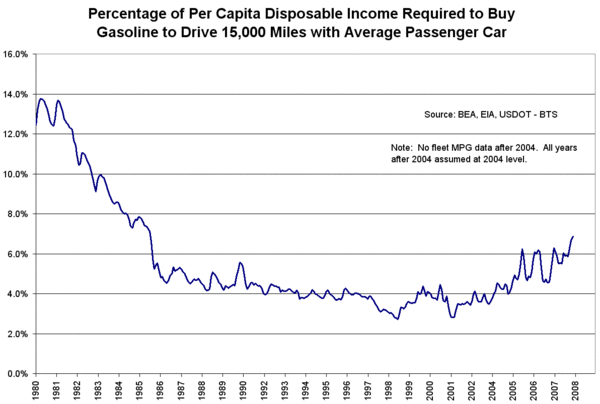Mark Perry has had a series of posts of late presenting the hypothesis that high rates of home ownership in the US may be detrimental as it reduces labor mobility. The argument goes that homeowners have a harder time moving for new jobs than renters do.
Homeownership
impedes the economy's readjustment by tying people down. From a social
point of view, it's beneficial that homeownership encourages commitment
to a given town or city. But, from an economic point of view, it's good
for people to be able to leave places where there's less work and move
to places where there's more. Homeowners are much less likely to move
than renters, especially during a downturn, when they aren't willing
(or can't afford) to sell at market prices. As a result, they often
stay in towns even after the jobs leave. And reluctance to move not
only keeps unemployment high in struggling areas but makes it hard for
businesses elsewhere to attract the workers they need to grow.
The argument makes sense on its surface, but I am having a bit of trouble buying into it (though I will admit that as an American, I am steeped in decades of home-ownership-boosterism, so I may not be approaching the problem without bias).
On the plus side, the selling a home and buying a new one certainly has more costs than switching apartments, particularly if you add in a moving premium for home owners who can accumulate a lot more stuff than apartment dwellers and the switching costs due to emotional attachment to the current house. Also, on its face, the argument is similar to criticisms of the economy of the antebellum south, where too much capital was invested in land and assets tied to the land.
However, I see a couple of problems with it. First, its hard to find an increase in structural unemployment rates in the past decades to correlate to the increase in home ownership. Second, the costs to change homes has been falling of late as the government-protected Realtor monopoly is finally being broken by technology and commission rates are falling. Third, my sense is (though I can't dig up the data) that the average time in a home is dropping, meaning homes flip owners more frequently, again indicating a decreasing barrier to moving.
I would, however, be willing to accept that in a high home ownership regime, falling home prices and lengthening for-sale times could exacerbate an economic downturn by slowing mobility and thereby slowing the correction. I would have argued in the past that this was offset by home equity as a savings tool and a source of cash in difficult times, but that could be different this time around as mortgage policies have tightened, drying up the ability to convert equity to emergency cash.









